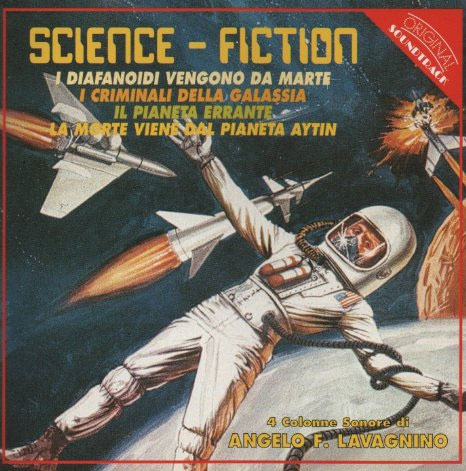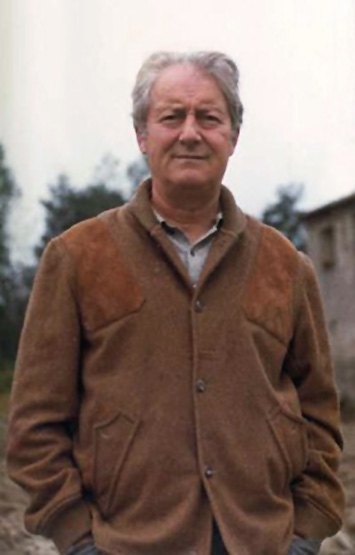Orson Welles’ original, full-length version of Othello finally makes it to the Lido. Celebrating the director’s centenary the 72nd Venice Film Festival will screen a restored Italian version of the classic on September 1, along with Welles’ 1969 Shakespeare adaptation The Merchant of Venice.
Othello took three years to make. Welles was to have premiered it at the Venice Film Festival in 1951, but withdrew it at the last minute, unhappy with the cut (which reportedly featured out of sync dialogue). A shorter, English version was presented at the Cannes Film Festival in May 1952 and won the Grand Prix.
The Merchant of Venice will feature a refresh on the music, which will be performed live by the Orchestra Classica di Alessandria, from an original, unpublished score by Angelo Francesco Lavagnino (1909-1987). Called “one of the fathers of Italian film music,” Lavagnino lent melody to more than 300 films, three of them Welles’ Shakespeare entries (including Othello, with Alberto Barberis, and 1965’s Chimes at Midnight, also known as Falstaff).
Aside from the spare, impressionistic scores for the Welles films, Lavagnino is probably best known for the scores to the the Peter Ustinov-starrer The Wanderers (1956), Legends of the Lost (1957) with John Wayne and Sophia Loren, and Daisy Miller, the 1974 film directed by Peter Bogdanovich. His general oeuvre, however, is highly commercial, loaded with paghetti westerns and fantasy flicks (remember 1961’s Gorgo? (“Greedy sailors capture a giant lizard off the coast of Ireland and sell it to a London circus. Then its mother shows up!” as per IMDB.)
His fantasy forays were highly regarded enough to prompt two LPs, the 1997 Science Fiction soundtrack and Gamma Quadrilogy: 60s Italian Classic Freaky Sounds in 2005 (still available through sites like amazon and discogs). It’s no wonder Lavagnino leapt at the chance to work with Welles, even though he complained about that the budgets were spare.
“In Italy the record companies would pay for everything to do with the recording of the music, the orchestration and everything else, because they kept all the rights. So when the Spanish producer of Chimes was running out of money, it was fortunate Welles used Francesco Lavagnino again, as it meant the producer wouldn’t have to pay for the expense of recording the score with a complete orchestra,” Welles’ assistant, Juan Cobos, reminisced for WellesNet.com.
Conceived as a part of a special for CBS television, The Merchant of Venice was was a project Welles tried unsuccessfully to finish on his own after the network withdrew financing. Only a 30-minute version has been available in the intervening years. In 1982 Welles claimed that the negative was stolen in some mysterious way. Other sources reported that a sound reel was lost after a preview screening in Rome. In fact, only fragments of the film survived in the collections of Cinemazero (at La cineteca del Friuli), La Cinémathèque Française, Filmmuseum München and Cineteca di Bologna.
The discovery by Cinemazero of half an edited working copy of Merchant and one reel of the mixed soundtrack combined with an original script by Welles found among the Oja Kodar paper collection at the University of Michigan library got things rolling. A cache of notes by composer Lavagnino and a new transcription of his work from the only performance recorded at the time further seeded the project. The composition has not previously been heard in public and makes its world premiere.
Since only parts of the soundtrack still exist and nobody knew exactly how Welles planned to conclude the film, it was impossible to reconstruct Merchant of Venice in its entirety. The lost sound of the last part has been substituted by some title cards and sound recordings of Welles’s play. The reconstruction was undertaken by Cinemazero and Filmmuseum München.
Othello was refurbished by CSC Cineteca Nazionale in Rome. Both films were lensed in part in Venice during Welles’ vagabond European years. The Welles Centennial screenings will take place in the Sala Darsena (Palazzo del Cinema) on the Lido di Venezia, Tuesday, September 1.
The 72nd Venice Film Festival (2nd – 12th September 2015) will feature an exhibition of Welles’ paintings, “Shakespeare & Cigars.” Curated by Bianca Lavagnino and Sergio Toffetti, the exhibit includes 12 wooden panels (the backs of the boxes of Orson Welles’ favourite cigars) on which in the 1960s Welles himself painted many of the characters he was eventually to play: Macbeth, Othello, Falstaff, Shylock.
Welles’ history with the Venice Film Festival is checkered indeed. In 1948 Welles submitted then withdrew his Macbeth at the Venice Fest, reportedly because it was drawing unfavorable comparisons to Laurence Olivier’s Hamlet, entered the same year.
For more information about the Venice Biennale visit the site.




Comments are closed.